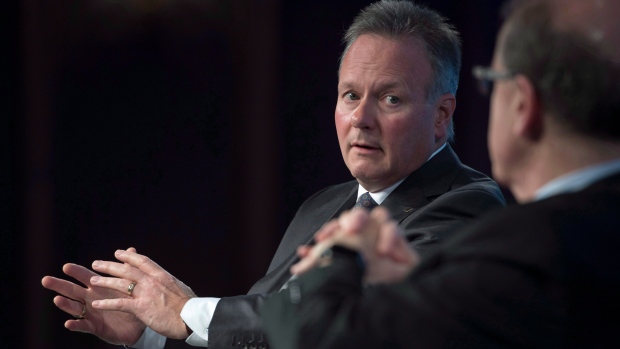Jul 4, 2017
BoC rate hike speculation grows on Poloz comments in German newspaper
, Reuters

Canada's inflation should be well into an uptrend by the first half of 2018, the Bank of Canada's head told a German newspaper, adding that policy normalization must begin before price growth hits its target in the latest hawkish comments from the central bank.
The Bank of Canada has set the stage for interest rate hikes to come as soon as later this month in comments made in recent weeks, surprising many analysts who had not expected a hike until 2018.
Two top policymakers said last week that the two interest rate cuts made in 2015 to offset the shock of cheap oil prices have done their job.
Markets are now pricing in 54.4 per cent odds of a hike after the Bank of Canada's next meeting on July 12..
A hike would be the bank's first since 2010. The bank cut interest rates to 0.50 per cent in 2015 and have held steady since.
Bank of Canada Governor Stephen Poloz reinforced those expectations in an interview with Handelsblatt published on Tuesday, which boosted the Canadian dollar to a nearly 10-month high against the greenback.
While Poloz noted that Canada's core inflation, which strips out volatile items, is "fairly soft," he said monetary policy must anticipate where the economy will be in 18 or 24 months from now.
"If we only watched inflation and reacted to inflation, we would never reach our inflation target, we'd always be two years behind in the reaction," Handelsblatt quoted Poloz as saying.
"So we have to look at the rest of our indicators in the models that predict inflation," he added, suggesting that easing off the accelerator is appropriate even before hitting the target.
Canada's annual inflation rate cooled more than expected in May to 1.3 per cent, while the three measures of core inflation the central bank set last year also remained subdued. The bank has an inflation target of 2 per cent.
Canada's output gap - the difference between actual and potential output - would likely close sometime in the first half of 2018, suggesting that by then, inflation should be well into an uptrend, Poloz added.
He added that while oil prices have fallen recently, levels between US$40 to US$50 per barrel are "not a big issue" for now.
